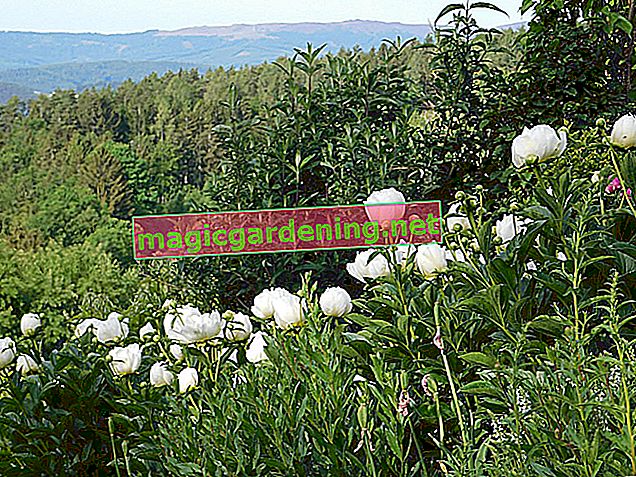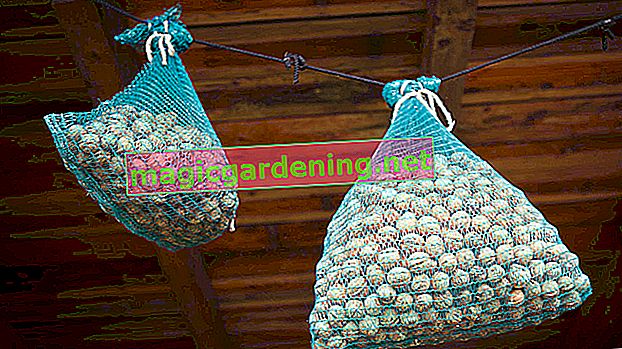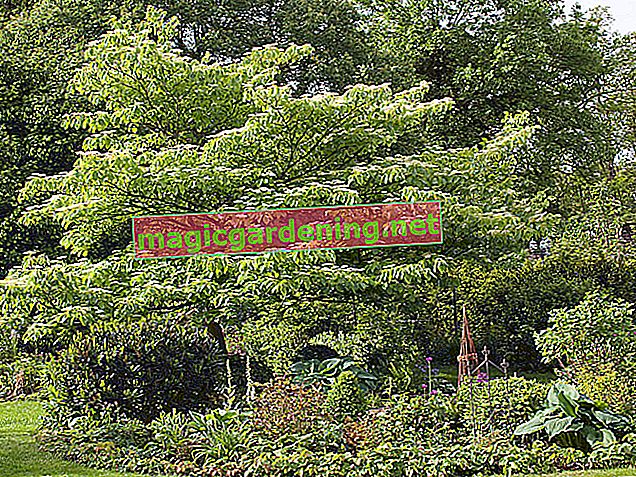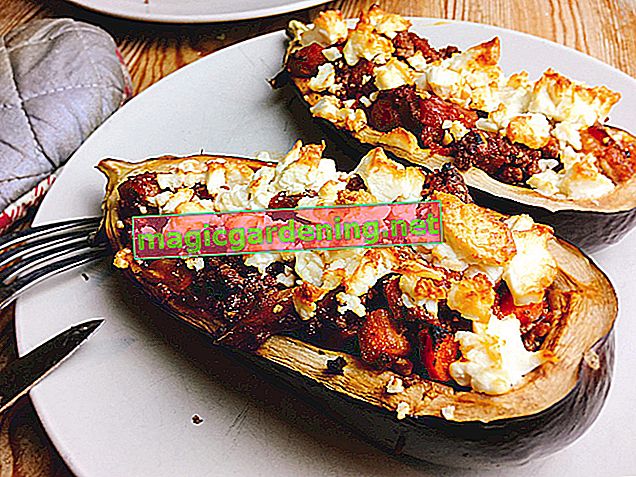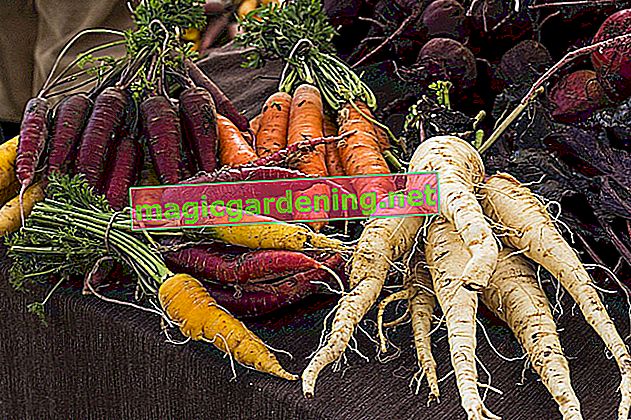
Advantages and disadvantages of summer raspberries
Summer raspberries only produce on two-year-old rods. The fruits ripen from June to July. The harvest is usually more abundant than with autumn raspberries.
also read
- Autumn raspberries - popular varieties for growing in the garden
- Growing raspberries in the garden - tips and tricks for growing them
- New raspberry varieties without thorns
On the other hand, the early varieties are more susceptible to disease and pest infestation. Summer raspberries are often attacked by the maggots of the raspberry beetle. They must therefore be continuously checked for diseases and pests.
Since only the two-year-old rods are cut back in summer raspberries, the rod disease can spread more easily.
Popular summer raspberry varieties
Red summer raspberries
- “Meeker” - is grown very often
- “Schönemann” - dark red, late summer raspberry
- “Elida” - ripens in early June
- “Glen Ample” - thornless, medium-red fruits
- “Tulameen” - dark red raspberries
- “Rubaca” - medium-late ripening, medium-red raspberry
- “Glen Coe” - does not form spines, purple fruits
- “Framita” - thornless, dark red raspberry
Yellow summer raspberries
- “Golden Queen” - robust summer raspberry, golden colored fruits
- “Yellow Antwerp” - short stature, does not have to be tied
- “Fallgold” - ripens in July
Advantages and disadvantages of autumn raspberries
Autumn raspberries already bear on the annual canes and ripen from August. They can be harvested several times a week until frost. The yield is lower than that of summer raspberries. The fruits are also not quite as aromatic.
The pruning of autumn raspberries is much easier because all the shoots are cut back. This means that rod disease occurs less often.
Since the raspberry beetle no longer lays eggs when the autumn raspberries are in bloom, the fruits are largely maggot-free.
Popular autumn raspberry varieties
Red autumn raspberries
- “Aroma Queen” - high yield
- “Autumn Bliss” - aromatic, can be grown in a pot
- “Bakker's Jewel” - ideal for processing
- “Polka” - very firm fruit
- “Pokusa” - large pearls
- “Himbotop” - very well known, aromatic variety
Yellow autumn raspberries
- “Alpine gold” - thornless
- “Autumn Amber” - apricot colored
- “Autumn gold” - honey-colored
- “Golden Everest” - robust variety with large fruits
- “Golden Bliss” - yellow-orange raspberries
- “Goldmarie” - old local variety, very aromatic
Black raspberries
Black raspberries are a special case. They cannot be clearly assigned to summer or autumn raspberries. They ripen later than summer raspberries but earlier than the late varieties.
Well-known black raspberry varieties are:
- “Black Diamond” - very robust raspberry
- “Bristol” - deep black, late summer raspberry
- “Black Jewel” - violet-black fruits with a light gray haze.
Two-timer raspberries bear twice
The best known two-timer raspberry is "Sugana". It is not only ideal for growing in the garden, but also as a container plant.
The variety bears medium-red fruits that you can harvest for the first time from June and the second time from August.
Tips & Tricks
If you grow summer and autumn raspberries in the garden at the same time, you should definitely plant them separately. This makes maintenance easier because you know exactly which rods to prune and when.


